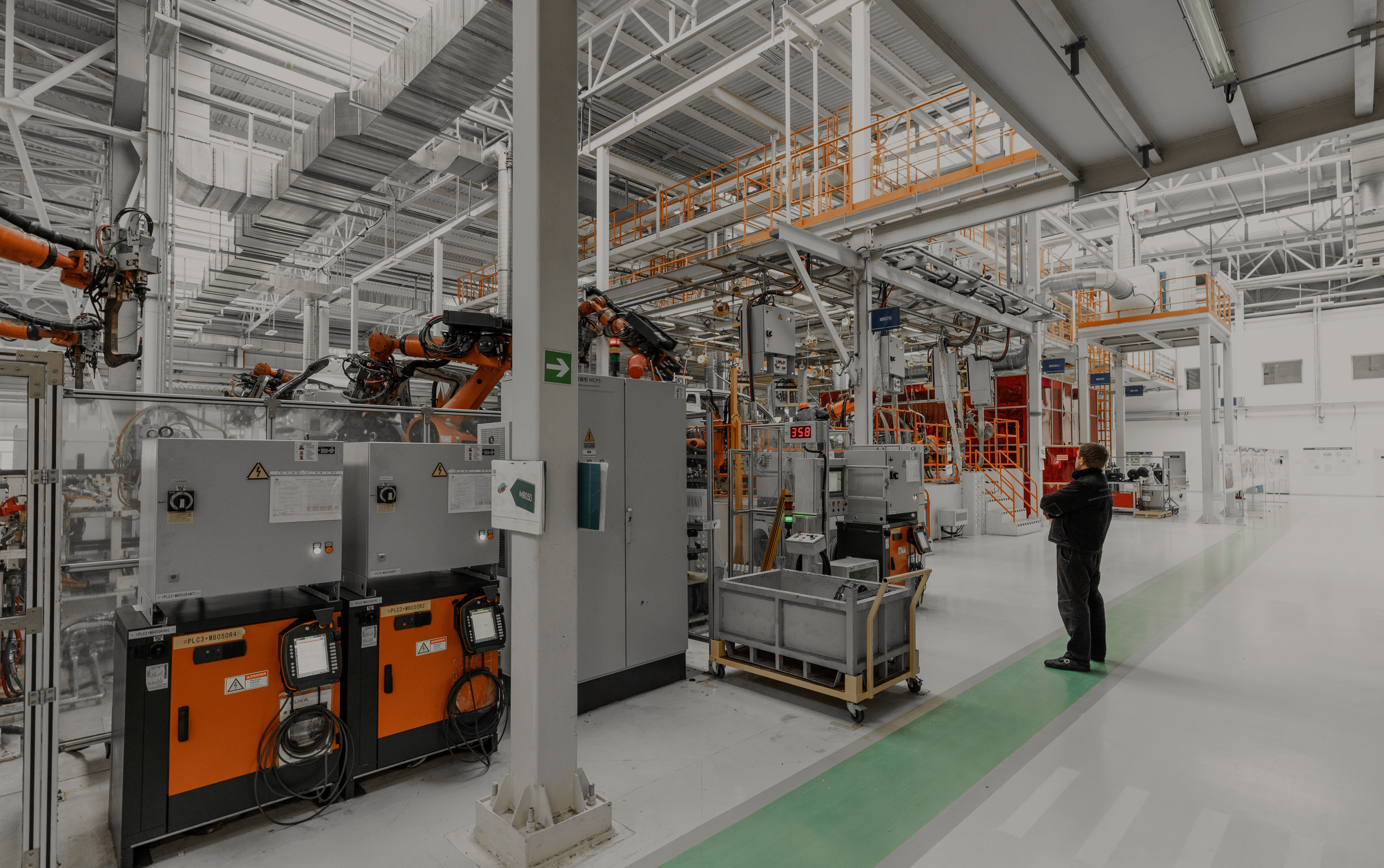Essential Event Planning Checklist for Seamless Events
Discover the must-have items on your event planning checklist to ensure every detail is covered for a flawless occasion. Unlock the key to stress-free event coordination now!
Planning an event can be a daunting task, but with the right strategy and a well-thought-out checklist, you can ensure that every detail is covered. Whether you're organizing a corporate conference, a wedding, or a community event, this essential event planning checklist will guide you through the process, making your event a seamless and memorable experience for everyone involved.
1. Define Your Event Objectives and Goals
Before diving into the logistics, clearly define the objectives and goals of your event. Whether it's to educate, celebrate, or fundraise, a clear understanding of your purpose will guide all subsequent planning decisions.
2. Establish a Budget
Set a realistic budget that encompasses all aspects of your event. This includes venue costs, catering, decorations, entertainment, and any additional expenses. Having a clear budget from the start will help you make informed decisions throughout the planning process.
3. Choose the Perfect Venue
Selecting the right venue is crucial to the success of your event. Consider factors such as capacity, location, and amenities. ''Corproate Event Management Companies in Bangalore'' Ensure the venue aligns with your event's theme and provides the necessary facilities for a seamless experience.
4. Create a Detailed Timeline
Develop a comprehensive timeline that outlines every stage of the event planning process, from the initial concept to post-event follow-up. A well-structured timeline ensures that tasks are completed in a timely manner, preventing last-minute stress.
5. Compile a Guest List
Determine the number of attendees and create a guest list. This will help with various planning aspects, including catering, seating arrangements, and promotional activities.
6. Catering and Menu Selection
Coordinate with catering services to plan a menu that suits the theme and dietary preferences of your guests. Confirm the number of attendees to ensure an adequate amount of food and beverages.
7. Secure Necessary Permits
Check local regulations and secure any required permits for your event. This may include permits for outdoor events, serving alcohol, or street closures, depending on the nature of your gathering.
8. Arrange for Audio-Visual Needs
Ensure that all audio-visual requirements are met. This includes sound systems, projectors, screens, and any other equipment necessary for presentations, performances, or entertainment.
9. Develop a Promotion and Marketing Plan
Create a marketing strategy to promote your event. Utilize social media, email newsletters, and traditional advertising methods to generate buzz and attract attendees.
10. Day-of Coordination and Contingency Plans
On the day of the event, have a dedicated team or coordinator to oversee logistics. Additionally, prepare contingency plans for unforeseen circumstances, such as weather changes or technical difficulties.
By following this essential Event Management Companies in Bangalore you'll be well-equipped to create a seamless and unforgettable experience for your guests. Remember, attention to detail and thorough preparation are the keys to hosting a successful event Also you may read ''Birthday Party organisers in Bangalore''.
PPAP Process - F A Q
What is PPAP?
PPAP stands for "Production Part Approval Process." It is a standardized process in the automotive and manufacturing industries used to ensure that suppliers can consistently produce parts that meet the requirements and specifications of their customers.
Why is PPAP Important?
PPAP is crucial for ensuring the quality and consistency of parts in the production process. It provides a systematic approach to verifying and approving supplier processes, reducing the risk of defects and ensuring that the final product meets customer expectations.
When is PPAP Required?
PPAP is typically required in the automotive industry, especially for suppliers working with Original Equipment Manufacturers (OEMs). It may also be required in other manufacturing sectors where product quality and consistency are critical.
What are the Key Elements of PPAP?
The key elements of PPAP include design records, engineering change documents, process flow diagrams, process Failure Mode and Effects Analysis (FMEA), control plans, measurement system analysis, and part submission warrant, among others.
How Does PPAP Benefit Suppliers?
PPAP benefits suppliers by providing a clear and standardized process for gaining customer approval. It helps suppliers identify and address potential issues early in the production process, reducing the likelihood of defects and rework.
What is the Submission Level of PPAP?
PPAP has different submission levels based on the risk associated with the part or process. Submission levels range from Level 1 to Level 5, with Level 1 being the least complex and Level 5 being the most comprehensive, including full production parts.
Who Manages the PPAP Process?
The PPAP process is typically managed by quality and engineering teams within both the supplier and customer organizations. Effective communication and collaboration between these teams are essential for a successful PPAP submission.
What is the Purpose of Part Submission Warrant (PSW)?
The Part Submission Warrant is a document included in the PPAP submission that provides a written guarantee that the parts being produced meet all customer requirements. It serves as a formal declaration of conformance.
How Often is PPAP Renewed?
PPAP is typically required for new parts, significant design changes, or when there is a change in the manufacturing process. It is not a recurring process for existing, well-established parts with no changes.
Can PPAP be Applied Beyond Automotive Industry?
While PPAP originated in the automotive industry, its principles and practices can be applied in various manufacturing sectors where ensuring the quality and consistency of production processes is essential. Many industries with stringent quality requirements have adopted PPAP or similar processes to ensure product integrity.
Campaign Management
Campaign management refers to the strategic planning, execution, and monitoring of marketing initiatives designed to achieve specific goa
ls or objectives. It involves coordinating various elements such as advertising, promotions, and communication efforts across different channels to reach a target audience effectively. This process includes setting objectives, selecting the target audience, creating compelling messages, determining the appropriate channels, and analyzing results to optimize future campaigns. Successful campaign management requires a combination of creativity, data analysis, and adaptability to ensure that marketing efforts align with overall business objectives and deliver measurable results.
IMDS Services by Licentiesoft
Welcome to Licentiesoft, your trusted partner in achieving seamless compliance with the International Material Data System (IMDS) and Collaborative Data eXchange (CDX). Our comprehensive services are designed to empower manufacturers, ensuring adherence to industry standards and regulatory requirements. Let’s explore how Licentiesoft can guide you through the intricacies of IMDS and CDX compliance. The Best IMDS Services & IMDS training Company
IMDS Services by Licentiesoft
At Licentiesoft, we offer a suite of IMDS services tailored to your needs:
Data Entry and Management: Efficiently input and manage material data with our expert support. Includes, IMDS Creation, Supplier Contact,Supplier IMDS Evaulation, BOM Analysis, etc
Regulatory Compliance: Ensure compliance with global environmental regulations through meticulous data reporting. Following Guide Lines like ELV, SVHC, GADSL ,following OEM guideline, Chemical Substances analysis for EU-REACH, SCIP, CMRT, PROP 65,POPs,BPR, etc
Lifecycle Integration: Seamlessly integrate IMDS into your product development lifecycle for enhanced efficiency.



Comments
Post a Comment